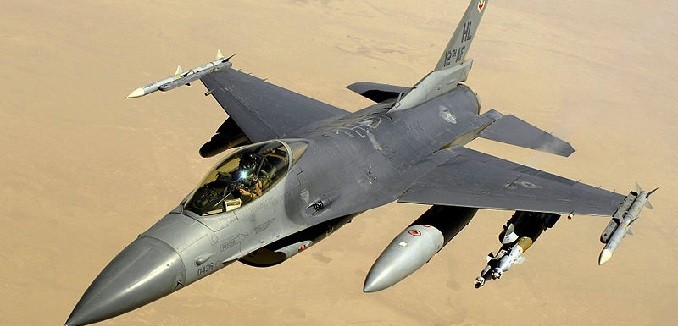Politico this morning chased down three top U.S. defense contractors to assess the effects they were feeling from the U.S.’s partial freeze on Egyptian military assistance. The conclusion of the article was that “if the U.S.-Egyptian relationship is patched up quickly enough,” then the impacts could at least be “manageable.” The path on the way to that conclusion was brutal:
Tank-builder General Dynamics, for example, has spent years pushing Congress to keep up tank orders for its plant in Lima, Ohio — even though the U.S. Army says it has more tanks than it wants. Army officials have said that export orders, including for Egypt, are enough to keep the line running, but GD and its allies in Congress don’t agree… “This could have a devastating impact on the General Dynamics tank plant because it is right on the edge in terms of being able to keep production lines open,” said Loren Thompson, a defense consultant and chief operating officer of the Lexington Institute.
Lockheed Martin has said its Fort Worth, Texas, F-16 production line would close in 2017 without additional orders. The U.S. hold on Egypt aid means Lockheed will stop work on six aircraft now in production, but a spokesman did not say what that would mean for the end of the line… But even if Lockheed won’t say it, the cessation of deliveries of fighter jets to Egypt stings. “Probably the most affected program is the F-16,” said Richard Aboulafia, an aerospace industry analyst at the Teal Group. “The F-16 line is getting extremely thin, and customers exactly like Egypt … are exactly what’s keeping it going.”
Last week’s announcement by the White House was met with anger by Capitol Hill lawmakers, who described themselves as “blindsided” by the move, and with frustration, by the U.S.’s Middle East allies.
More over analysts had already begun openly worrying months ago that regional actors, worried by what they perceive as a U.S. withdrawal from the region, would pivot to the U.S.’s geopolitical rivals. Military expert Maj. Gen. Hamdi Bakhit raised the same possibility in recent days:
Military expert Maj. Gen. Hamdi Bakhit told As-Safir that the Egyptian army will not be affected by the aid cut. He called Washington’s decision a mere threat to test how solid the Egyptian administration is in dealing with the United States. He stressed that the US administration needs military ties with Egypt. “Egypt has good relations with Russia. And if ties with the United States are severed, there will be no problem regarding military cooperation with Moscow. And in that case, the United States will be the biggest loser because it gets important advantages in the region because of that aid. The most important [of those advantages] is safe passage in Egyptian air space and securing its vessels passing through the Suez Canal, and the consolidation of its relationship in the Middle East as a whole, not to mention that if there’s a Egyptian-Russian convergence the [US] will have to face another rival in the region,” he added.
The Egyptians had expressed themselves “surpris[ed]” at the aid cutoff, noting that they were current engaged – leveraging critical U.S. assistance – in a campaign to uproot jihadists from the Sinai Peninsula. The same point was subsequently made by Bloomberg writer Jeffrey Goldberg, who dryly noted that the administration moves might be “shortsighted”:
And then there’s the Sinai Peninsula. The Obama administration presumably won’t be cutting off Egypt’s counterterrorism aid, which it is using to wage a struggle against al-Qaeda-like groups in the Sinai. But alienating generals who are currently acting in the national-security interests of the U.S. could be interpreted as shortsighted. Preventing the region from descending into chaos is an important task in the fight against Islamist extremism. It is, however, in Egypt’s interest to contain Hamas and fight Islamist terror, whether the U.S. helps with direct military aid or not. And the Obama administration knows this.
[Photo: roberthuffstutter / Flickr]




